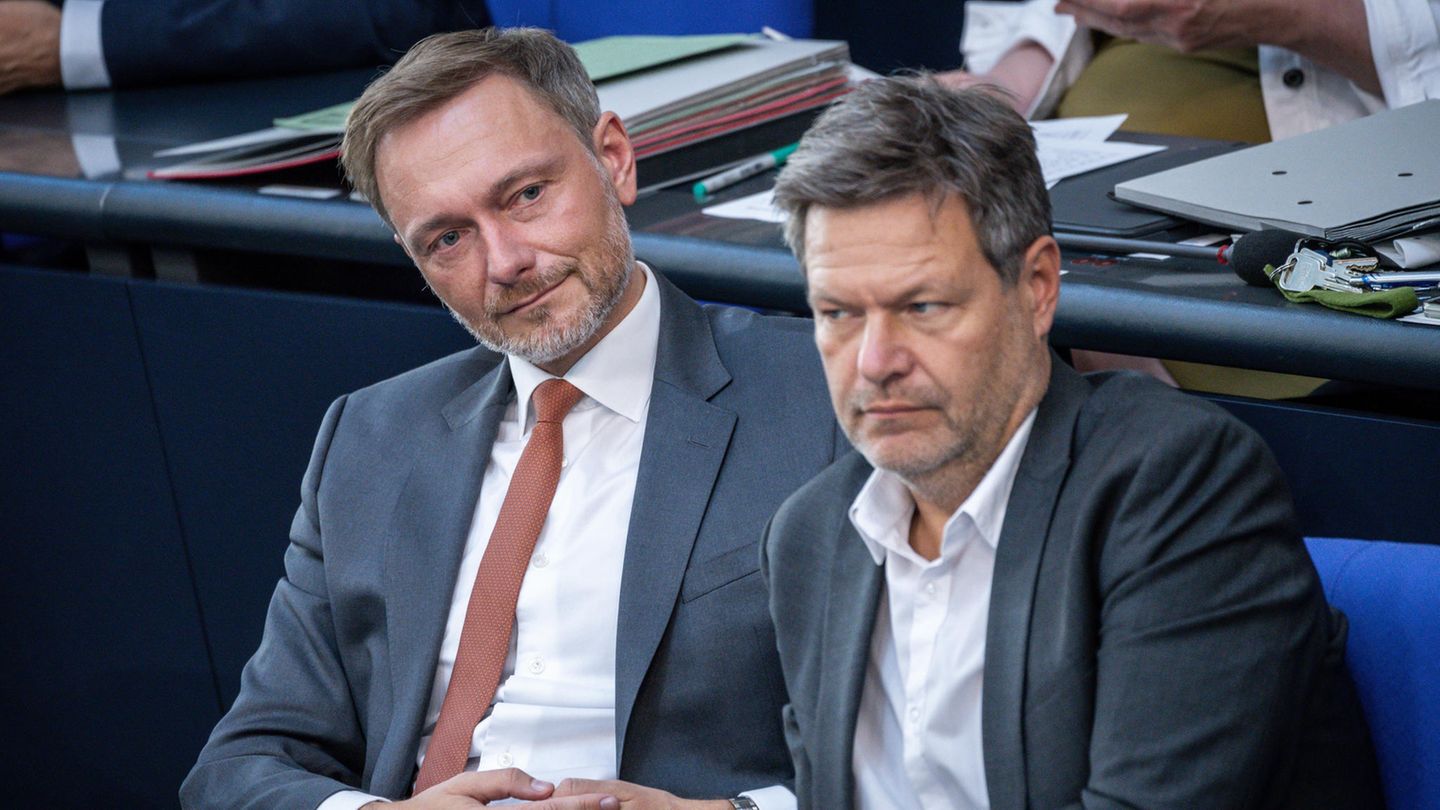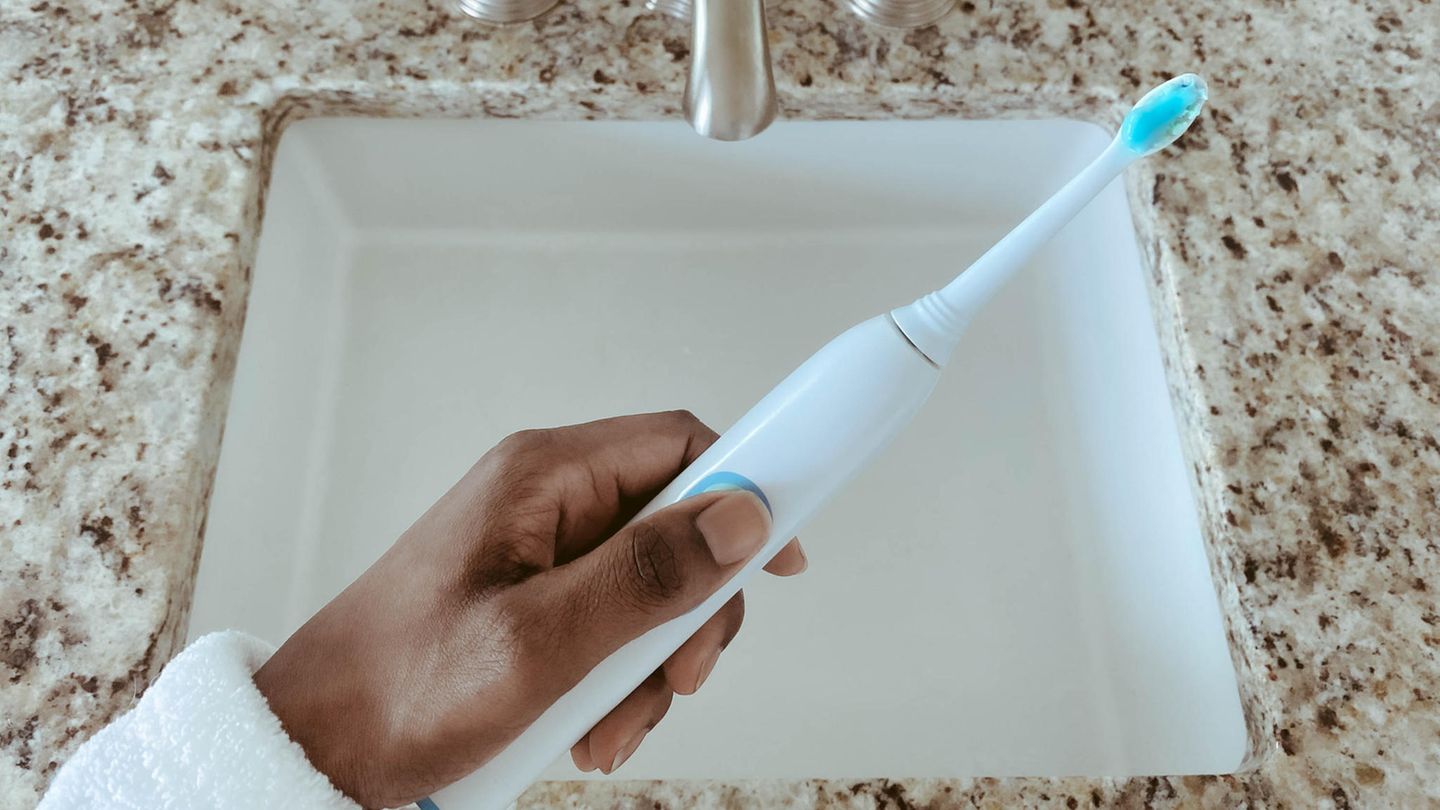It crunches in the traffic light coalition, especially the Greens and FDP are on more and more topics crossed. Both sides knew that things would not be easy for them.
Perhaps a look into the paint box will help to make the tricky matter a little more tangible. If you mix green and yellow together, you get: A lighter shade of green. The more yellow ends up in the green, the richer, brighter – and ultimately yellower – the mixture becomes. Only: until the green gradually reveals the yellow, it takes a lot of yellow blobs of paint.
Now the right mix is also important in government coalitions. And the FDP is obviously not satisfied with the current mix. The Liberals are struggling for perception and visibility alongside the Green coalition partner, who is showing significantly more charisma in SPD Chancellor Olaf Scholz’s traffic light alliance. As a result, the FDP is trying to set its own (color) accents.
Where Greens and FDP are in a clinch
Both sides knew that things would not be easy for them. After the federal elections, the parties assumed the role of chancellor-makers, without which it was practically impossible to form a government. And so the first thing to do was to clarify whether green and yellow go together at all.
The then Greens co-boss Robert Habeck, “that the parties that are furthest apart at first, let’s see if they can do it together”. And that’s the FDP and the Greens, you’re “really contrary to social, tax and financial policy issues.” The FDP apparently saw things in a similar way, which initially wanted to go into “preliminary discussions” with the Greens.
Now the Greens and FDP have been governing in the traffic light alliance for 194 days – and are crossing over more and more topics:
Fracking Ban. In view of the energy crisis, the FDP wants to put the ban on natural gas production in Germany through so-called fracking to the test. Scientific studies show that fracking “does not cause any relevant environmental damage under modern safety standards,” said Parliamentary Secretary Torsten Herbst, and called for a serious examination “of whether larger shale gas production is feasible in Germany from an economic and technical point of view.” The Greens counter: “Fracking will by no means solve our current situation,” said deputy parliamentary group leader Julia Verlinden to the newspapers of the Funke media group. Also Federal Minister of Economics and refers to possible negative consequences for the environment as well as legal hurdles.
nuclear power. Federal Economics Minister Habeck has once again emphasized his no to nuclear power and has ruled out extending the life of nuclear power plants. In energy policy “we continue to exclude nuclear power”, . Nevertheless, FDP General Secretary Bijan Djir-Sarai asked in one of the “energy policy challenges”: “Can we categorically rule out an extension of the nuclear power plants?” Germany should “not shut itself off from a debate”, . The Greens do it anyway: They don’t want to know anything about an exit from the exit. “An extension of the service life can only be achieved, if at all, with cutbacks in nuclear power plant safety. This is out of the question for the Federal Environment Ministry, which is responsible for nuclear safety,” the newspaper quoted a spokesman for Environment Minister Lemke as saying.
debt brake. Lindner wants to comply with them from 2023, Greens (and SPD) not necessarily. Because of the increased energy and food prices, Greens co-boss Ricarda Lang wants to relieve the citizens, compliance with the debt brake is secondary. “The crucial question isn’t whether we suspend the debt brake come hell or not, but whether we can meet the challenges of our time,” she said. Federal Finance Minister and FDP leader Christian Lindner said: “To combat inflation, the state must end politics on credit”. From now on, “generating wealth must again be more important than distributing it,” said Lindner in the .
Out for the combustion engine. Seal that from 2035, the EU member states still have to agree to the proposal – or more precisely their governments. The project “does not meet our approval”, . Lindner was also critical. The statements of the liberals are in contrast to what Federal Environment Minister Steffi Lemke (Greens) said in Brussels in March: she had expressly supported last year’s decision on behalf of the federal government – which also means with combustion engines in cars and vans to be completed by 2035.
corona policy. What’s next after September 23? The Infection Protection Act is expiring, in which, among other things, questions about the obligation to wear a mask can be regulated. Federal Minister of Health Karl Lauterbach (SPD) wants to prepare a possible mask requirement from autumn, but , who recently even . Lindner warns that he wants to wait for the results of an expert commission. Bundestag Vice President Katrin Göring-Eckardt (Greens) warned that the liberals should be allowed to prepare for the corona virus. “I recommend the Greens to return to fact-based politics instead of continuing to pursue fear-based politics”, .
excess profit tax. Despite tax cuts, fuel prices have only fallen temporarily in many places, and mineral oil companies have been criticized. Should their “excess profits” be skimmed off via an additional levy on the extra profits from the Ukraine war? Federal Minister of Economics Habeck considers this worth considering. “I think it’s right not to accept every win”, . “Profiting from the war isn’t really the way to go.” Lindner says: . “There is a great danger of achieving the opposite of what the advocates and advocates want”, . His concern is that an “arbitrary tax increase” for a single industry will ultimately make things more expensive in Germany.
Some benefit, others want to distinguish themselves
While the Greens have been able to benefit from the traffic light alliance so far, the FDP is now trying to make a name for itself. According to the Greens, they have gained eight percentage points in popular support since the federal election (from 14.8 to 23 percent), while the Liberals have lost support (from 11.5 to eight percent). Alone: In one, 41 percent of Germans stated that they believe the Greens set the tone in traffic lights. 28 percent see the SPD as the clock, only eleven percent the FDP.
The FDP should not allow this trend to continue – and place a few more demonstrative splashes of color.
Source: Stern
David William is a talented author who has made a name for himself in the world of writing. He is a professional author who writes on a wide range of topics, from general interest to opinion news. David is currently working as a writer at 24 hours worlds where he brings his unique perspective and in-depth research to his articles, making them both informative and engaging.




